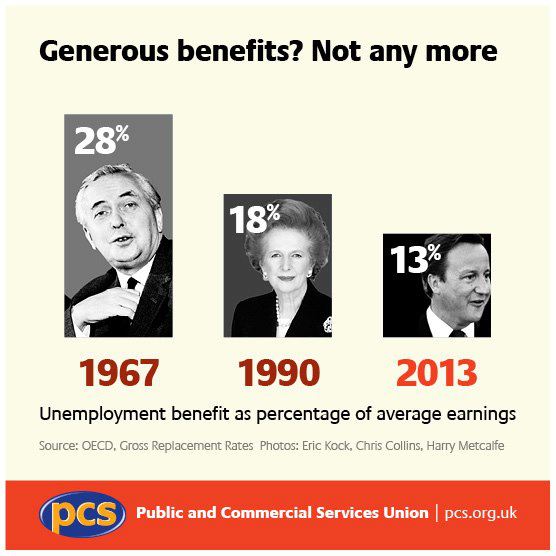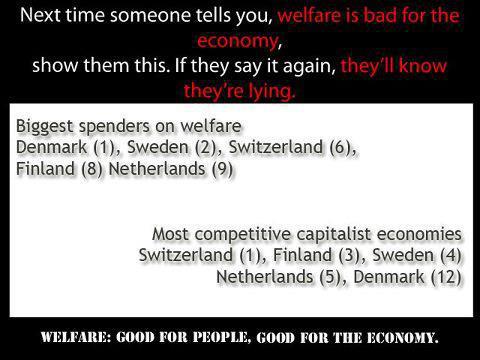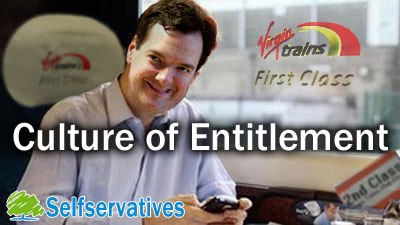
The minimum cost of living has soared by a quarter – 25% – since the start of the economic downturn, according to a report from the Joseph Rowntree Foundation, which details the true inflationary pressures facing low income households. The research finds families are facing an “unprecedented erosion of household living standards” thanks to rapid inflation and flat-lining wages.
Cuts to benefits and tax credits have exacerbated the problem over the past 12 months, according to the report. Now we are seeing the hard evidence that the Coalition’s “reforms” are pushing employed people in low paid work and unemployed people into absolute poverty, as our welfare system is no longer meeting basic living needs, and Government policy has distorted the original purpose of our social security, using rhetoric about costs to “the tax payer”, whilst carefully excluding the fact from their monologue that most benefit recipients are also tax payers.
A frightening consideration is that this report doesn’t include the latest round of benefit cuts – the very worst of them to date – that were implemented in April of this year. The report was produced prior to then, covering the period up to April, but doesn’t include it.
A quarter of households in the UK already fell short of the income required to reach an adequate standard of living – for them a 25% increase in costs intensifies the everyday struggle to make ends meet. The price of food and goods we need for an acceptable living standard has risen far faster than average inflation. This has combined with low pay increases to create a widening gap between income and needs.
The freeze in child benefit, the decision to uprate tax credits by just 1% and the increase in the cost of essentials faster than inflation mean that a working couples with children an working lone parents will lose out, making a mockery of the Coalition’s claim of “making work pay”.
Over the past five years:
• Childcare costs have risen over twice as fast as inflation at 37%.
• Rent in social housing has gone up by 26%.
• Food costs have increased by 24%.
• Energy costs are 39% more.
• Public transport is up by 30%.
Some further shocking Key findings from the Poverty and Social Exclusion Project – The Impoverishment of the UK report reveals that:
• Over 30 million people (almost half the population) are suffering some degree of financial insecurity.
• Almost 18 million people cannot afford adequate housing conditions.
• Roughly 14 million cannot afford one or more essential household goods.
• Almost 12 million people are too poor to engage in common social activities considered necessary by the majority of the population.
• About 5.5 million adults go without essential clothing.
• Around 4 million children and adults are not properly fed by today’s standards.
• Almost 4 million children go without at least two of the things they need;
• Around 2.5 million children live in homes that are damp.
• Around 1.5 million children live in households that cannot afford to heat their home.
Since 2010, wages have been rising more slowly than prices, and over the past 12 months, incomes have been further eroded by cuts to benefits and tax credits. Ministers argue that the raising of the personal tax allowance to £10, 000 for low income households will help, however, the report says its effect is cancelled out by cuts and rising living costs.
I would add that for many who are low paid, and the increasing numbers of part-time workers, this political gesturing is meaningless. The policy only benefits those who earn enough to pay tax. Most of this group are affected by the benefit cuts – many have to claim housing benefit and council tax benefit, and they are therefore likely to be affected by the bedroom tax and the poll tax-styled reductions to benefits under the Localism Bill, to compound matters.
It has to be said that the greatest percentage change in net income from the personal tax free allowance of £10,000 is seen by those on the upper end of the income scale – not, as is often claimed, low earners. This does explain the policy. Increasing the personal allowance serves to increase the gap between the those on the lowest incomes and those on middle range incomes, resulting in low income households falling further into poverty.
At the low paid end of salaried work there are a cohort of workers trapped in a cycle of very poorly paid, low – skilled work, zero hour contracts, with few, if any, employee rights. They tend to work for a few months here and there, in work that is often seasonal. There is no opportunity for saving money or hope of better employment prospects.
This group of workers tend to live hand to mouth from one pay day to the next, so have no opportunity to build a reserve when the contract ends, there is nothing in reserve.
The net result is that it is increasingly very difficult for low-to-middle income families to balance the weekly budget. There is now a widening gulf between public expectations of a minimum decent living standard and their ability to earn enough to meet it. I would add that the gap between low and middle income families is widening, and will continue to do so because of the impact of policies that have recently been implemented.
Welfare support is one of the hallmarks of a civilised society. All developed countries have such support for the vulnerable, and the less developed ones are striving to establish their own. Welfare states depend on a fair collection and redistribution of resources, which in turn rests upon the maintenance of trust between different sections of society and across generations. Most of us have paid for our own welfare.
It’s a common rhetorical trick for politicians is to talk about “looking after the tax payer.” However the reality is that they are often only really concerned with particular tax payers – the electoral groups that determine the outcomes of elections – often people on middle-incomes. They talk as if tax payers are some hard-pressed group who are burdened by the poor and that the rest of us don’t pay taxes.
But the reality is that there are many different taxes (the Institute of Fiscal Studies counted at least 25). Also the poorest people don’t just pay tax, they often pay the most tax. Not just indirect taxes, like VAT, but also income tax and council tax. Many other taxes are hidden from view in duties or other background taxes like Employer’s National Insurance.
Most assume that the rich pay a much higher rate of tax than the poor. After all the income tax system is meant to place progressively higher burdens on people with higher incomes. However, when you look at the rates of tax paid by each household it is very surprising.
The highest rate of tax, that is the share of income lost in tax, is paid by the poorest 10% of households (or families). The poorest 10% of families pay 45% of their income in tax. The other 90% of families pay quite a similar rates of tax, varying between 31% and 35%.
The three things to remember when politicians talk about tax:
1. Tax payers are not a special class of people – we are all tax payers.
2. Tax payers are not burdened by the poor – the poor are actually super tax payers.
3. Tax cuts come in many different shapes and sizes – not everybody benefits equally. The wealthiest profit the most.
(Information taken from here)

Statisticians hold two basic definitions of poverty – relative poverty is a measure which looks at those well below the median average of income (60% of income) – who are excluded from participating in what society generally regards as normal activities. This kind of poverty is relative to the rest of society, and is the type that we have seen and measured since the welfare state came into being.
Absolute poverty refers to a level of poverty beyond the ability to afford the essentials which we need simply to live and survive. People in absolute poverty cannot afford some of the basic requirements that are essential for survival. It is horrifying that this is now the fastest growing type of poverty in Britain, according to research bodies such as the Institute for Fiscal Studies (IFS) and Joseph Rowntree Foundation. When the IFS produced its report on growing child poverty, David Cameron’s callous, calculated and unflinching reaction was to question the figures, rather than accept the consequences of his Government policies on citizens.
And it IS calculated and deliberate legislative spite. The Government’s own impact assessment has demonstrated that the 1% uprating in the Welfare Benefits Up-rating Act will have a disproportionate effect on the poorest. Families with children will be particularly hard hit, pushing a further 200,000 children into poverty. In addition, those with low to middle earnings and single-earner households will be caught by the 1% limit on tax credit rates. These new cuts come on top of the cumulative impact of previous tax, benefit and public expenditure cuts which have already meant the equivalent to a loss of around 38% of net income for the poorest tenth of households and only 5% for the richest tenth.
According to a TUC report, average wages have dropped by 7.5 per cent since the Coalition came into office. This has a direct impact on child poverty statistics, which the government has conveniently ignored in its latest, Iain Duncan Smith-endorsed, child poverty figures.
Child poverty is calculated in relation to median incomes – the average income earned by people in the UK.
If incomes drop, so does the number of children deemed to be in poverty, even though – in fact – more families are struggling to make ends meet with less money to do so.
This is why the Department for Work and Pensions has been able to sound an announcement that child poverty in “workless” families (which translates from Tory propaganda-speak to “victims of the Government- induced recession”) has dropped, even though we can all see that this is nonsense.
As average incomes drop, the amount received by families not in work – taken as an average of what’s left – appears to rise, even though, as we know, the increase is not even keeping up with inflation any more.
Liam Byrne said: “The Institute of Fiscal Studies report shows that the price of ministers’ failure on child poverty isn’t just a million more children growing up poor – it’s a gigantic £35 billion bill for the tax payer. It’s not just a moral failure, but an economic disaster.”
“Ministers should be doing everything they can for struggling families but instead they are slashing working families’ tax credits whilst handing a massive tax cut to the richest people in the country. That tells you all you need to know about this Government’s priorities.”
And – “Not only is there a cost attached to rising levels of child poverty but the trend is illegal. Left unabated child poverty will reach 24% in 2020, compared with the goal of 10% written in law.”
Iain Duncan Smith, the welfare and pensions secretary, has publicly questioned whether poverty targets are useful – arguing that “feckless” parents only spend money on themselves. The spirits of Samuel Smiles, Thomas Malthus and David Ricardo, they of the workhouse mentality, speak clearly in booming voices through Iain Duncan Smith from across the centuries.
And of course the Department for Work and Pensions ludicrously continue to blame the previous Administration. We know, however, that the research here shows starkly that poverty has risen under this Government, and we are now seeing cases of childhood malnutrition, such as scurvy.
The breakfast clubs established under the previous Labour Government, as a part of the Extending Schools program and Every Child Matters Bill often provided crucial meals, particularly for children who relied on school provision – in fact, for one in four of all UK children, school dinners are their only source of hot food. Malnutrition is rising and schools see children coming in hungry.
The previous Government recognised the importance of adequate nutrition and saw the link between low educational attainment, behavioural difficulties and hunger in school. The breakfast club provision also helped parents on low incomes in other ways, for example, the free childcare that these wrap-around services provided is essential to support them to keep on working.
There are further issues worth a mention from Osborne’s Comprehensive Spending Review, that are not in the report. They are worth a mention not least because they tell you all you need to know about the Coalition. They speak volumes about Tory-led intention, malice and despicable aims. They expose the lie once again that the Tories “support” the most vulnerable citizens.
I’m very concerned about Osborne’s plans to set a cap on benefits spending. This cap will include disability benefits, but exclude spending on the state pension. Disabled people have already faced over £9 billion of cuts to benefits they rely on, with at least 600,000 fewer expected to qualify for the new Personal Independence Payment, which is replacing disability living allowance, and over 400,000 facing cuts to their housing benefit through the bedroom tax. Disabled people of working age have borne the brunt of cuts, and the Government is once again targeting those who can least afford to lose out.
By including “Disability Benefits” in the cap, the Government have signalled clearly that they fully intend severing any remaining link between social security and need. We are hurtling toward a system that is about eradicating the cost of any social need. But taxation hasn’t stopped, however, public services and provisions are shrinking.
Barely a month now passes without one of David Cameron’s ministers being rebuked for some act of statistical chicanery (or, indeed, the Prime Minister himself). And it’s not just the number crunchers at the UK Statistics Authority who are concerned. An alliance of 11 churches, including the Methodist Church, the Quakers and the Church of Scotland, has written to Cameron demanding “an apology on behalf of the Government for misrepresenting the poor.”
Many people have ended their lives. Many people have died because of the sustained attack from our Government on them both psychologically and materially, via what ought to be unacceptable, untenable and socially unconscionable policies. People are going without food. People are becoming homeless. There are people now living in caves around Stockport. The UK is the world’s six largest economy, yet 1 in 5 of the UK population live below the official poverty line, this means that they experience life as a daily struggle for survival.
And this is because of the changes this Government is making. And we are allowing them to do so. Unless we can form a coalition with other social groups in our society, we are unlikely to influence or produce enduring, positive political change. But that will only happen once others realise that they are not exempt from the devastating changes, or the long term consequences of them. It’s down to us to ensure that the public are informed, since the maintream media have abdicated that responsibility.
The author of the Joseph Rountree Foundation report, Donald Hirsch, says the cumulative effect is historically significant:
“From this April, for the first time since the 1930s, benefits are being cut in real terms by not being linked to inflation. This combined with falling real wages means that the next election is likely to be the first since 1931 when living standards are lower than at the last one.”
Further reading:
Briefing on How Cuts Are Targeted
Who Really Benefits from Welfare?
 Thanks to Robert Livingstone for his brilliant artwork
Thanks to Robert Livingstone for his brilliant artwork
 The BBC reports that leaked documents from the Department for Work and Pensions suggest the government is planning a regional benefits cap, reducing child benefit, taxing disability benefits and reducing eligibility for the carers’ allowance. The proposals are aimed at helping to save £12 billion from the welfare budget by 2017/18. The Conservatives have of course insisted that the proposals were “not party policy.” Yet. They dismissed the leaked report as “ill-informed and inaccurate speculation.”
The BBC reports that leaked documents from the Department for Work and Pensions suggest the government is planning a regional benefits cap, reducing child benefit, taxing disability benefits and reducing eligibility for the carers’ allowance. The proposals are aimed at helping to save £12 billion from the welfare budget by 2017/18. The Conservatives have of course insisted that the proposals were “not party policy.” Yet. They dismissed the leaked report as “ill-informed and inaccurate speculation.” Thanks to Robert Livingstone for the memes used in this article
Thanks to Robert Livingstone for the memes used in this article













